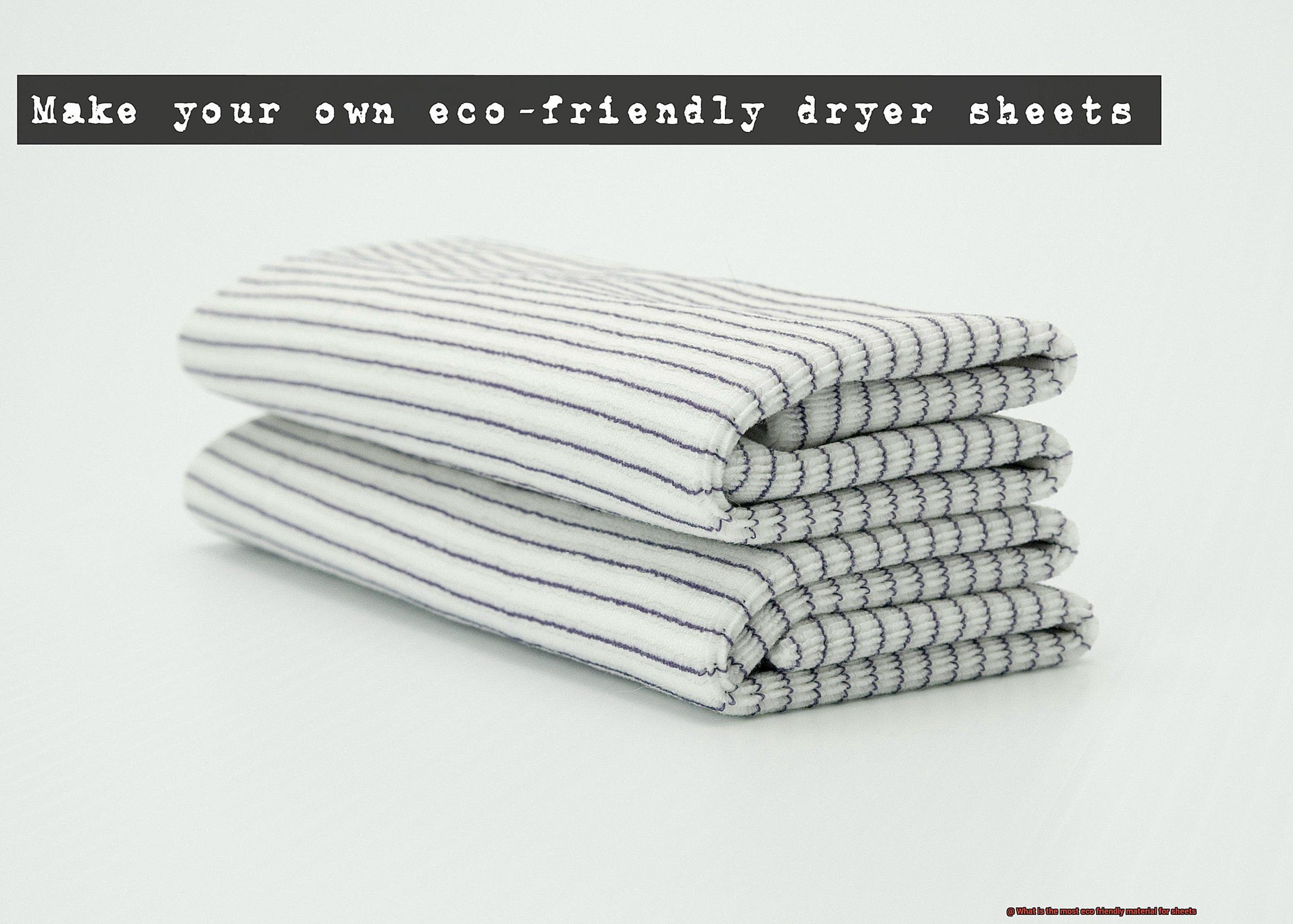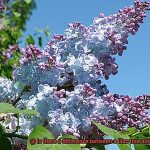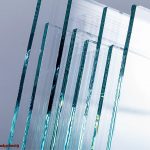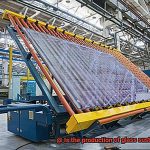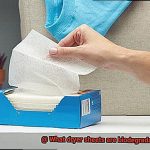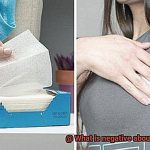Looking for the perfect sheets to add to your sustainable bedding collection? Look no further. As modern day consumers, we’re increasingly aware of our impact on the environment and are making conscious purchasing decisions. And when it comes to sustainable living, every aspect counts – including the sheets we sleep on.
So, what’s the most eco-friendly material for sheets? Cotton, bamboo, silk, or linen? It’s a million-dollar question with a lot of factors at play. But fear not. In this blog post, we’ll take a closer look at what makes sheets eco-friendly and which materials meet those criteria. We’ll dive into the production processes of each material and highlight their environmental impact. We’ll analyze different material properties and determine how they affect sustainability.
By the end of this post, you’ll have a clearer understanding of what to look for when choosing eco-friendly options for your sheets. So get ready to learn about the pros and cons of different materials and discover which one is right for you. Let’s dive in.
What is Eco-Friendly Material?
Contents
One simple solution is to choose bedding made from eco-friendly materials that are both renewable and have minimal impact on the environment. But what exactly makes a material eco-friendly, and which ones are best for bedding?
Eco-friendly materials are those that are produced through sustainable methods and can be reused, recycled, or decomposed naturally without causing any harm to the environment. When it comes to bedding, there are several fantastic options to consider.
Organic cotton is a popular choice for sheets as it is grown without harmful chemicals or pesticides, making it a safe and sustainable option. Plus, organic cotton is biodegradable, so it won’t contribute to landfill waste.
Bamboo has also become a favorite eco-friendly material for bedding thanks to its fast-growing properties and natural antimicrobial benefits. With fewer resources needed to grow than traditional cotton, bamboo is an excellent choice for those looking to live a more sustainable lifestyle.
Hemp is another option to consider when choosing eco-friendly sheets. Hemp plants require less water and pesticides than cotton plants and can be grown without the use of herbicides or fungicides. Not to mention, hemp fibers are incredibly durable, making them an excellent long-lasting option for bedding.
Linen is another fantastic eco-friendly material that is made from flax fibers, requiring less water and pesticides than cotton plants. Linen sheets tend to have a longer lifespan than traditional cotton sheets, making them a more sustainable choice in the long run.
Lastly, Tencel is a newer material made from wood pulp that features a closed-loop manufacturing process, minimizing waste and pollution. Not only is Tencel an eco-friendly option, but it’s also incredibly soft and comfortable to sleep on.
Benefits of Using Eco-Friendly Materials for Sheets
Look no further than eco-friendly bed sheets. These sheets are made from natural fibers, such as organic cotton, linen, or bamboo, that are grown without harmful chemicals or pesticides. By choosing eco-friendly materials, you’re reducing your carbon footprint and contributing to a more sustainable future.
But the benefits don’t stop there. Eco-friendly materials are often produced through sustainable manufacturing processes that minimize waste and reduce energy consumption. This means that not only are the materials themselves better for the environment, but the production process used to create them is as well. So you can feel good about your purchase knowing that you’re supporting a cleaner planet.
In addition to being better for the environment, natural fibers have health benefits too. Unlike synthetic materials that trap heat and moisture, eco-friendly sheets are breathable and allow air to circulate freely. These sheets help regulate body temperature, keeping you cool and comfortable throughout the night. Plus, they’re naturally antimicrobial, making them a great choice for those with allergies or sensitive skin.
But it’s not just about you – investing in eco-friendly sheets also supports small businesses and local artisans who specialize in sustainable manufacturing practices. By choosing to purchase from these companies, you’re helping support a more ethical and sustainable supply chain while getting high-quality products that are built to last.
Organic Cotton
This natural fiber boasts numerous benefits that make it an ideal choice for conscientious consumers.
One of the most significant advantages of organic cotton is that it is grown without harmful pesticides, fertilizers, or genetically modified organisms (GMOs). Instead, farmers use natural methods like crop rotation and composting to maintain soil health and keep pests at bay. This makes organic cotton farming a sustainable and environmentally friendly option that reduces the negative impact on soil, water, and air.
But the benefits don’t end there. Organic cotton is also safer for people. Its production process does not involve any harsh chemicals, making it an ideal choice for farmers and workers who grow and harvest the cotton. Moreover, it means that the end product is free from harmful residues that could potentially harm consumers.
For those with sensitive skin or allergies, organic cotton sheets are a great option as they are hypoallergenic and offer a soft and comfortable feel that’s hard to replicate with synthetic materials. Rest assured you’ll enjoy a good sleep, minus any irritations.
When purchasing organic cotton sheets, ensure they have certifications such as GOTS or USDA Organic to guarantee they meet strict environmental and social standards. While they may be more expensive than conventional alternatives, investing in organic cotton sheets is an investment in both environmental sustainability and personal health.
Bamboo
If you’re searching for a bedding option that’s both kind to the planet and gentle on your skin, look no further than bamboo sheets. As an expert in the field, I can confidently say that bamboo is an eco-friendly superstar when it comes to bedding materials.
Bamboo is a fast-growing plant that requires little water and no pesticides to thrive, making it a more sustainable option than traditional cotton. Additionally, bamboo is biodegradable, so it won’t harm the environment like synthetic materials. Bamboo sheets are crafted from the plant’s fibers, which are spun into soft and silky yarn before being woven into fabric.
But let’s talk about comfort. Bamboo sheets have numerous benefits over cotton sheets in terms of feel. They’re softer and more breathable, which makes them ideal for hot sleepers who want to stay cool and comfortable all night long. Plus, bamboo sheets are naturally hypoallergenic and antimicrobial, making them perfect for allergy sufferers or those with sensitive skin.
However, not all bamboo products are created equal. Some companies use harsh chemicals in their processing methods, which can harm the environment and negate the eco-friendly benefits of using bamboo. To ensure you’re choosing a sustainable option, look for certified organic bamboo sheets that have been processed using eco-friendly methods.
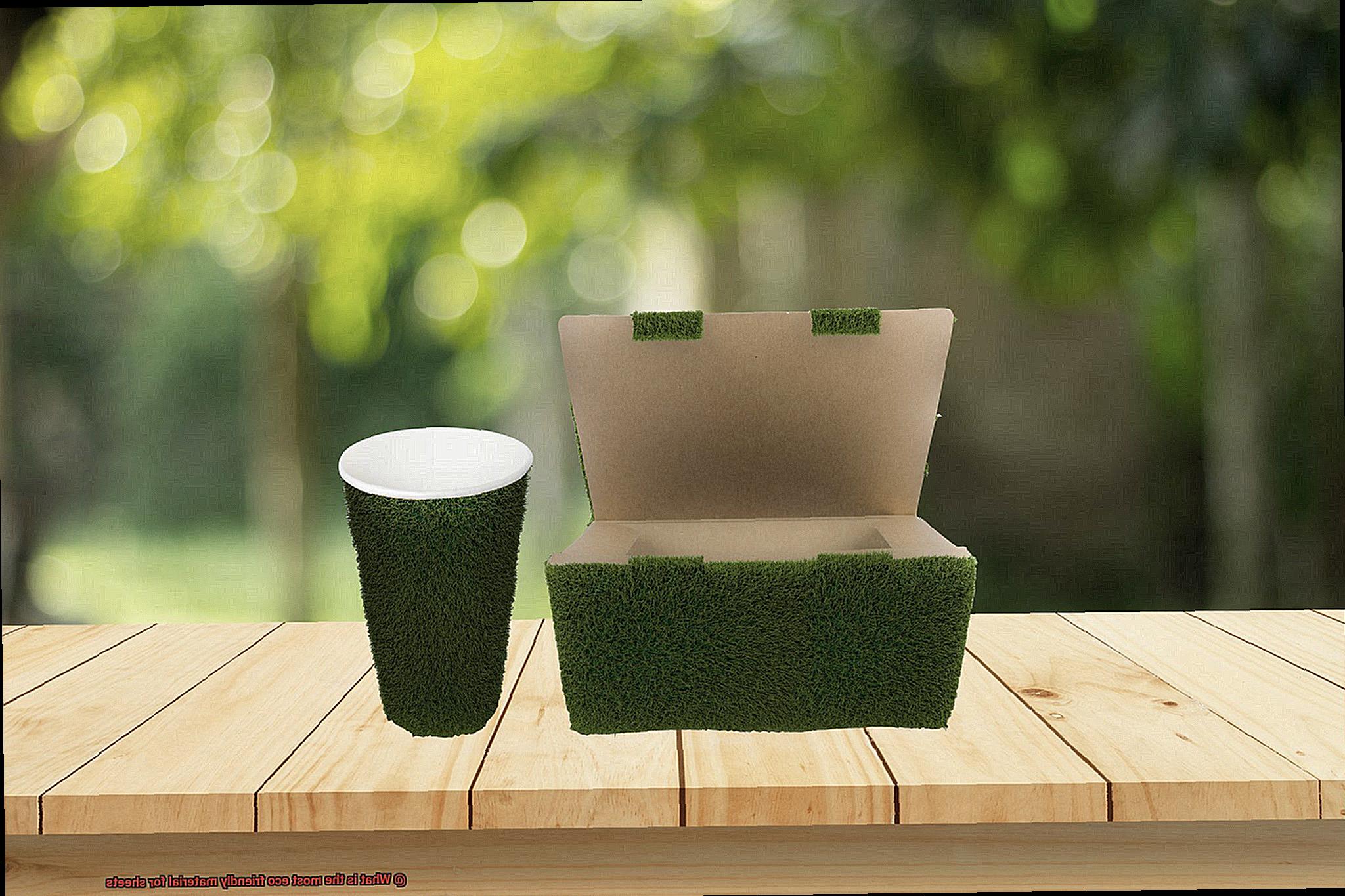
Hemp
Look no further than hemp sheets. As an expert on this topic, I can attest that hemp is one of the most environmentally conscious materials you can choose for your sheets.
Hemp is a plant-based material that is grown without the use of harmful pesticides or chemicals, making it an excellent sustainable option. Additionally, it’s highly durable and can withstand wear and tear over time, making it a smart investment that will last for years.
But wait, there’s more. Hemp sheets have several other impressive benefits. They are naturally hypoallergenic, which makes them perfect for people with allergies or sensitive skin. They are also highly breathable, helping regulate body temperature and keeping you comfortable throughout the night.
While it’s true that hemp sheets may be more expensive than other materials, the investment is worth it because of their durability and sustainability. And as hemp becomes more popular and widely available, the prices may go down in the future.
Linen
Look no further than linen sheets. As an expert in bedding materials, let me tell you why linen is the way to go.
Linen is a natural material made from the fibers of the flax plant. It’s popularly used for bed sheets because of its breathability and durability. But that’s not all – linen sheets are also eco-friendly due to the low water and pesticide requirements of flax cultivation, making them a sustainable option for those who care about the environment.
But that’s not all – linen sheets are naturally hypoallergenic and temperature regulating, making them an excellent choice for those with sensitive skin or who sleep hot. And if you’re worried about biodegradability, you’ll be happy to know that linen sheets can easily decompose in soil without leaving any harmful residue.
However, it’s important to note that linen sheets may require more maintenance, as they tend to wrinkle easily and may require ironing. This can be time-consuming and may not be suitable for those who prefer low-maintenance bedding.
And while linen sheets may be more expensive compared to other materials such as cotton or polyester, their durability and biodegradability make them a worthwhile investment in the long run.
KNOjjlbYDFA” >
Conclusion
In conclusion, choosing eco-friendly sheets isn’t just a smart move for the environment but also for our own well-being. When searching for sustainable options, there are several materials to consider, including organic cotton, bamboo, hemp, linen, and Tencel. Each material brings its own unique benefits and properties that make them an excellent choice for conscientious consumers.
Organic cotton is a fantastic option as it’s grown without harmful chemicals or pesticides, making it both safe and sustainable. Bamboo is another popular choice due to its fast-growing nature and natural antimicrobial properties. Hemp requires less water and pesticides than cotton plants and can be grown without herbicides or fungicides. Linen is crafted from flax fibers that require less water and pesticides than cotton plants while Tencel is a newer material made from wood pulp with a closed-loop manufacturing process.
Using eco-friendly materials for sheets goes beyond sustainability; they’re often produced through sustainable manufacturing processes that reduce waste and energy consumption. Natural fibers are also breathable, hypoallergenic, temperature-regulating, and long-lasting.
By investing in eco-friendly sheets, you’re not only supporting small businesses and local artisans who specialize in sustainable manufacturing practices but also contributing to a cleaner planet. While they may cost more than conventional alternatives upfront, investing in eco-friendly sheets is an investment in both environmental sustainability and personal health. So why wait?
